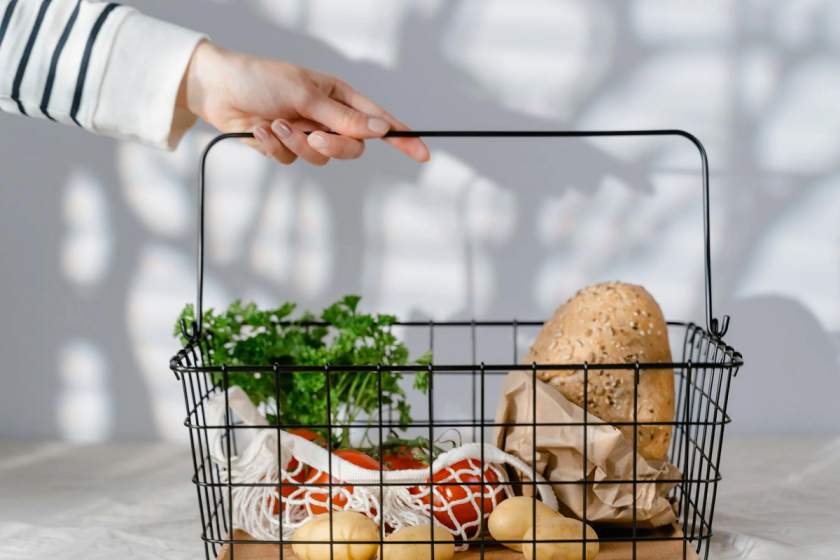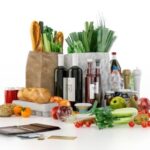In an era where every penny counts, finding ways to save on everyday expenses like groceries can make a significant difference in your budget. Food shopping is a necessity, but it doesn’t have to break the bank. Whether you’re a budget-conscious shopper or simply looking to trim your monthly spending, this blog is here to help.
We’ll explore five practical and effective money-saving tips for food shopping that can help you keep more money in your wallet without compromising on the quality of your meals.
From the importance of a well-thought-out shopping list to the benefits of embracing frozen foods, we’ve got you covered. Let’s embark on this journey towards more cost-effective and efficient food shopping, starting with tip number one: “Make a Shopping List.”
Table of contents
Make a Shopping List
One of the fundamental steps in saving money on food shopping is to create a well-structured shopping list before you even set foot in the store. A shopping list serves as your roadmap, guiding you through the aisles with purpose and helping you avoid impulsive purchases.
Start by planning your meals for the week. Take inventory of what you already have in your pantry, fridge and freezer. Then, jot down the items you need to complete your planned meals. Organise your list by categories like produce, dairy, meat and pantry staples to make your shopping more efficient.
Stick to your list diligently while shopping. It’s easy to get distracted by eye-catching displays or tempting promotions, but a well-thought-out list will help you stay on track. Remember, every item you add to your cart should serve a specific purpose in your meal plan.
Buy in Bulk
Buying in bulk can be a game-changer when it comes to saving money on food shopping. Many non-perishable items are significantly cheaper when purchased in larger quantities. This approach not only reduces the cost per unit but also minimises the frequency of your grocery trips.
Consider stocking up on pantry staples like rice, pasta, canned goods and dry beans. These items have a long shelf life and won’t go to waste. Buying in bulk is especially beneficial when you come across sales or promotions on these staples.
While buying in bulk can lead to initial savings, it’s essential to be mindful of storage space and the shelf life of the items you purchase. Properly storing bulk items will help you maximise your savings without compromising on freshness.
Embrace Frozen Foods
Frozen foods are a money-saving ally in your food shopping journey. They offer budget-friendly options compared to fresh produce. Here’s why they’re a smart choice:
- Extended Shelf Life: Frozen foods have a longer shelf life, reducing food waste. Buy in bulk without worrying about spoilage.
- Nutrient Retention: They can be as nutritious as fresh items, as they’re often frozen at their peak ripeness, preserving essential nutrients.
- Time and Convenience: Pre-cut and packaged frozen vegetables and fruits are convenient for quick, healthy meals on busy days.
Embracing frozen foods ensures savings and keeps essential ingredients readily available. Plus, if you can get frozen ready meals delivered to your door, you can save on transportation costs too.
Coupons and Discounts
Unlock the savings power of vouchers and discounts. Keep an eye on your local shop’s weekly offers and make the most of digital vouchers loaded onto your loyalty card or app. Enrolling in a shop’s loyalty scheme can often lead to exclusive discounts and rewards.
Don’t overlook manufacturer websites, voucher apps, and local newspapers for additional savings. With some strategic voucher cutting and bargain hunting, you can layer discounts and turn each visit to the grocery store into a money-saving mission.
Plan Meals and Cook at Home
Meal planning and cooking at home are powerful tools for cutting food expenses. Start by designing a weekly meal plan based on your budget and dietary preferences. This helps you create a shopping list with precision, reducing the likelihood of impulse purchases.
Cooking at home not only saves money but also allows you to control the ingredients, portion sizes and nutritional value of your meals. It’s an opportunity to get creative with leftovers and transform them into delicious, cost-effective dishes.
Elevate Your Grocery Shopping Game
By implementing these money-saving strategies, you can transform your food shopping experience. Making a shopping list, buying in bulk, embracing frozen foods, using vouchers and cooking at home all contribute to significant savings over time. With a little planning and a dash of smart shopping, you can enjoy delicious meals while keeping more money in your wallet.
Remember, the key to successful food shopping isn’t just about what you buy. It’s also about how you buy it. So, embark on your next grocery trip armed with these tips and watch your budget thrive without sacrificing the quality of your meals.







